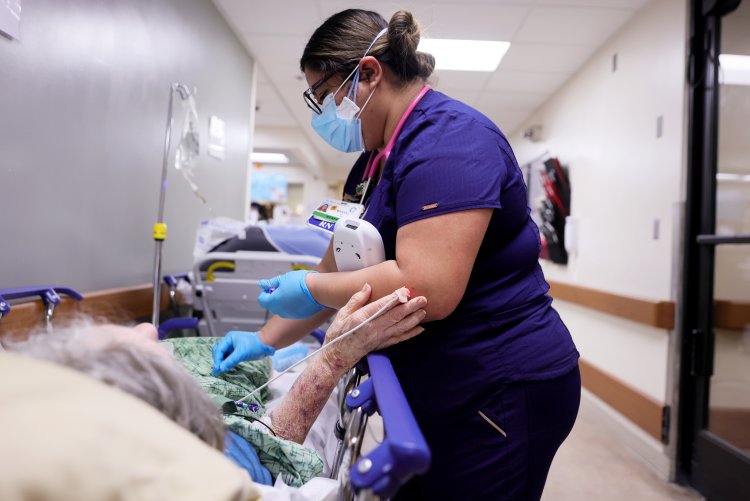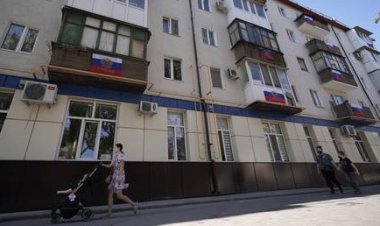Poll reveals Californians support health care funds for undocumented immigrants amid budget challenges
The PMG-Citrin Center poll indicates that there is considerable support for the program, even as it encounters increasing scrutiny from Washington and rising demands to scale back in light of California's budget shortfall.

About a third of the respondents argue that the state should not have expanded Medicaid coverage to undocumented immigrants, particularly working-age adults, and 17 percent call for either partial or complete reversal of this coverage. These insights could influence state lawmakers as they tackle unexpectedly high costs while preparing the upcoming budget, according to Jack Citrin, a UC Berkeley political science professor.
"There's broad support for the state's Medicaid program for undocumented immigrants," Citrin noted, but he added that there exists a degree of “nuance.” He speculated that state resistance against cutting Medicaid could lead to potential adjustments, suggesting limited access to certain demographics like children and the elderly.
California has extended Medi-Cal, the state’s Medicaid program, to all qualifying residents, irrespective of their immigration status, starting January 2024. This initiative aligns with Governor Gavin Newsom’s commitment to advancing universal health care coverage. Under his predecessor, Jerry Brown, undocumented children were allowed into Medi-Cal beginning in 2016, with Newsom gradually broadening eligibility until it encompassed everyone after he took office in 2019.
Recently, the program has faced criticism in conservative media, particularly from MAGA advocates who argue that it reflects a Democratic preference for immigrants over citizens. This criticism is intensified by the program’s unexpectedly high costs, which have contributed to a multibillion-dollar shortfall for Medi-Cal.
As a result, California has become a political target for the Trump administration and state Republicans amid a broader governmental push for cost-cutting and stricter migration controls. Democratic leaders attribute the budget issues to other factors, including rising pharmaceutical costs and an aging population.
The survey results also highlight significant divergences between general voters and a distinct cohort of policy influencers. The latter group expresses greater support for the undocumented program, with 31 percent favoring sustained funding despite the need for cuts, and 45 percent advocating for prioritization of legal residents if cuts are necessary. Only 11 percent of influencers felt the state should not have expanded Medicaid to undocumented residents, which is 20 percentage points lower than the general voter population.
Further divisions within the voter demographics emerged, revealing that Democrats generally support the program more than Republicans, with 58 percent of the latter believing Medicaid should not have covered the undocumented. Citrin noted that independent voters seem to straddle the line between these two perspectives, leaning more toward the Republican view—a significant observation given the growing size of this group in California.
Ethnic group responses showed that Hispanic and Asian voters are the most supportive of maintaining the program under budget constraints, with both groups at 27 percent compared to 17 percent for white voters, 14 percent for Black voters, and 20 percent for others. "Hispanics and Asians are the most: the largest recent immigrant groups," Citrin explained, suggesting that their empathy might stem from knowing undocumented individuals.
The survey, performed using the TrueDot.ai platform from April 1 to 14, involved 1,025 California registered voters and 718 influencers, with the latter group sourced from a list including California Playbook, California Climate, and PMG Pro, comprising lawmakers and legislative staff.
At a time of financial strain, California had to borrow $3.4 billion in March to resolve a short-term cash flow issue and allocated an additional $2.8 billion earlier this month to sustain operations until June. The current Medi-Cal expenditures are approximately 7.5 percent higher than last year's original budget.
"Providing health care to people is one of the most important and most popular things the government does,” stated Amanda McAllister-Wallner, executive director of the health care consumer advocacy group Health Access. “It’s something that’s worth the investment.”
These state budget challenges coincide with Congress's plans to potentially slash hundreds of billions from the federal Medicaid budget over the next decade, which could lead to a complete restructuring of the program.
“The cost of the program is more than anticipated. It is unsustainable,” Erika Li, chief deputy director of budgets in the state finance department, indicated during a recent legislative hearing. “We are looking at ways to curb those costs.”
Li’s comments suggest that the Newsom administration could contemplate significant changes or budget cuts to the health insurance program, which may be proposed in the governor’s budget revision in May.
As pressures from both state and federal fronts heighten regarding the Medi-Cal budget, the expansion to undocumented residents faces increased scrutiny. Republicans are advocating cuts to benefits and requesting a federal audit of the program. Conversely, legislative Democrats firmly oppose any measures that might dismantle Medi-Cal for individuals lacking legal status, focusing instead on finding methods to reduce health care costs more broadly.
Several factors have contributed to the rising Medi-Cal caseload over recent years, including the program's expansion to undocumented residents. Additional flexibilities implemented during the pandemic have also resulted in fewer terminations due to paperwork complications. Changes in laws to ease financial barriers for seniors have further increased the number of beneficiaries on Medi-Cal, which, combined with rising overall care costs, means higher total expenses.
Assemblymember Jasmeet Bains, a family physician, expressed her frustration during a budget hearing last week regarding Republican sentiments about undocumented coverage. "People need to wake up and understand that health care is important, taking care of the vulnerable is important," Bains urged. “The talking point that covering undocumented people leads to increased health care costs is complete B.S.”
Sanya Singh for TROIB News











